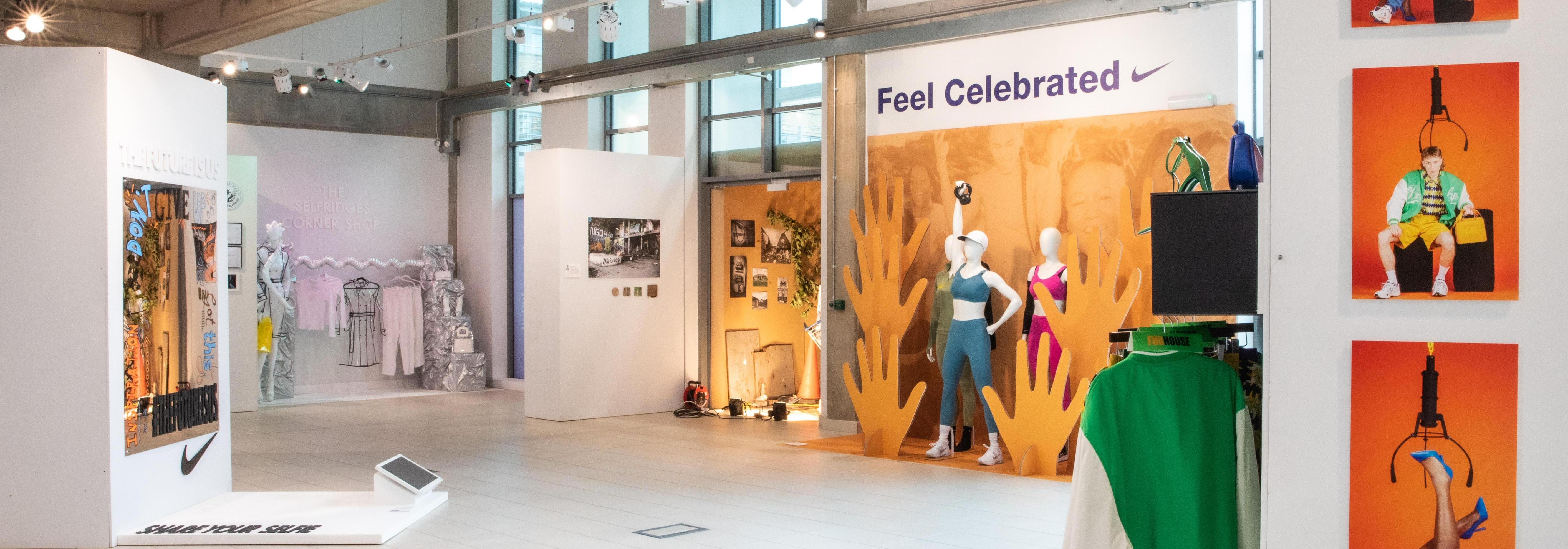There were 261,000 estimated jobs in the TV, film, radio and photography sector in 2017. Between 2011 and 2017, there was a 24.1 per cent rise in the number of UK jobs in this category. This category represented 12.9 per cent of creative industries employment.
This is an introductory course to image-making covering the technical subjects of location, studio, darkroom, digital imaging and genres such as Fashion, Advertising, Portraiture, Documentary, Photojournalism and Landscape. This course ensures that you are familiar with both historical and contemporary practice and practitioners. You will be expected to analyse all of your own photographs and write about the work of established photographers to aid you in developing your own style of image making.
"Our tutors get to know us and treat us as individuals - there are rules but more like a job than school."
"I like working in a studio with no uniform, calling our tutors by their first names and doing projects I want to do with no exams."
"I've done loads of real photography jobs, got paid and published. I am really confident about going for jobs as my portfolio shows what I can do!"
Career Destinations
- Portrait Photographer
- Commercial Photographer
- Scientific Photographer
- Photojournalist/News Photographer
- Freelance Photographer
What can I do next?
Successful completion of this course will enable you to progress onto the UAL Level 3 Extended Diploma in Art & Design (Photography) and subsequently to either HND Photography at Hertford Regional College or relevant degree courses. You would be able to enter the industry at assistant or junior level. You will have the skills and experience to be confident in the use of most photographic and digital processes and will have a portfolio of photographic work that will support your application of further study.
What will I be doing?
You will;
- Produce practical assignments using manual and digital SLR cameras with the opportunity to develop time based media projects
- Practice darkroom and processing techniques to produce hand-printed images
- Learn studio lighting and skills using software such as Adobe Creative Suite
- Provide a comprehensive in-depth study of photography to meet the creative and commercial needs of an image-based world
- Establish collaborative working practices and build communication skills
- Regular contributions to a photography gallery open to the public
- Develop appropriate skills/qualifications in English Maths and software applications
Added Extras
- Enrichment programme of visits may include the Photographers Gallery, the Sony World Photography Award Show at Somerset House and The National Portrait Gallery
- Work experience opportunities in a range of business sectors, including publishing and advertising, as well as with independent professional freelance photographers
- Regular event photography commissions through the college marketing department
- Develop a portfolio of work for direct progression to higher education degree or employment
- Develop an online presence though web and online media
How will I be assessed?
You will be assessed through working on practical assignments, producing a wide range of manual and digital photographic solutions. Using industry standard equipment including Apple Macs, Adobe Creative Suite and DSLR cameras. An exploration of the art and science of photography will include experiments with light, lenses, film and digital manipulation.
Entry requirements
A minimum of 5 GCSEs at grade 4/C, one of which must be English, or a Level 2 Art and Design Diploma at merit grade and English GCSE grade 4/C.
Applicants are asked to provide examples of art and design work at interview.
What do I need to bring?
Photography can be an expensive subject to study. You will be expected to own your own Digital SLR camera, tutors can advise on which camera to buy at the start of the course. Students are required to make a £30 contribution towards the cost of photographic paper and film and may need a basic art kit, folders and sketchbook. You will also be expected to pay to print your portfolio and exhibition photographs. £90 is payable on enrolment as a contribution towards the cost of study trips and additional materials.
Enrolled students at HRC who meet the eligibility criteria can apply to the Bursary Fund for support towards essential kit, uniform & material costs. Please note - Bursary funding is not guaranteed and is subject to availability at the time of application. For further information contact the Information Centre on 01992 411411 or email us at This email address is being protected from spambots. You need JavaScript enabled to view it..
Fee Information
Free to Home students under 19 on 31st August 2023.
If you are a Home student aged 19 or over on the 31st August 2023, you may be liable to pay approximately £2,500 tuition fee for a Level 2 qualification and approximately £5,000 for a Level 3 qualification (these were the tuition fees for 2022/2023 and could be subject to change for 2023/2024).
If you are aged 19-23 you may also be entitled to free tuition if the course you choose is on a government-approved list and the qualification is your first full Level 2 or Level 3 qualification.
If you are aged over 24 and you have not achieved a full Level 3 qualification you may be entitled to free tuition if the qualification is listed on the Government Free courses for jobs list. Similarly, if you already hold a Level 3 qualification (or above) and meet the Adult Education Budgets definition of unemployed or are in receipt of low wage, you may also be entitled to free tuition.
You may also be required to pay an administration fee, exam fees, kit fee and an Awarding Body Registration fee if applicable.
These fees are indicative of the 2024-25 costs and may be subject to change



